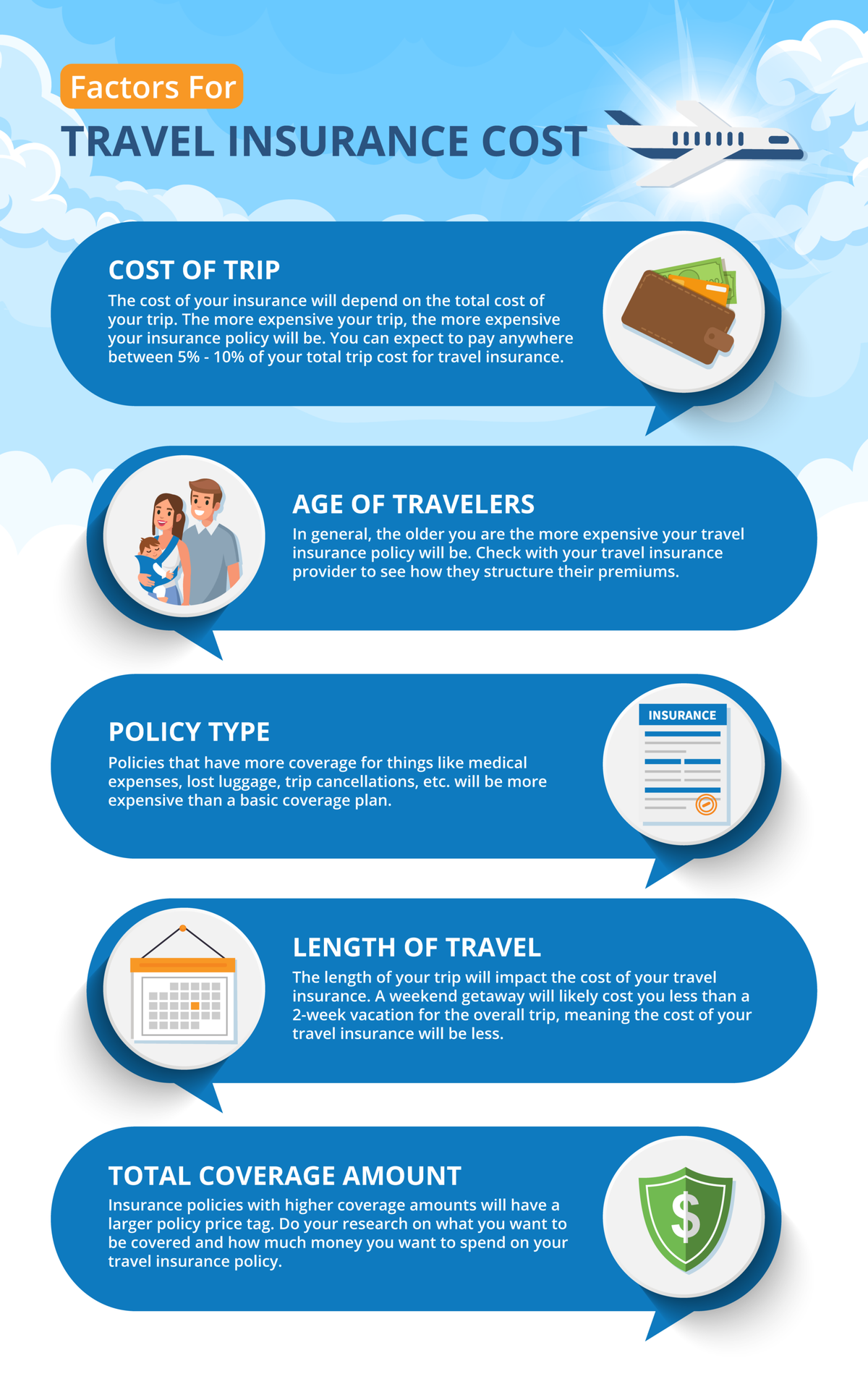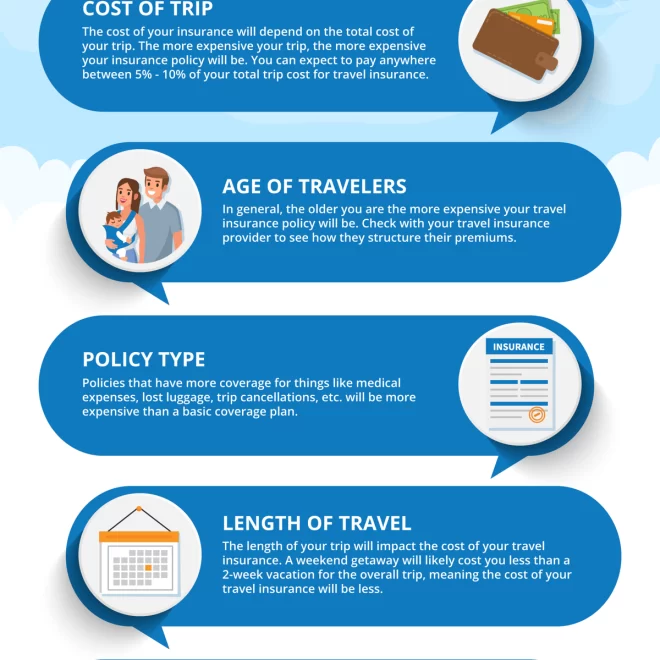Introduction
Traveling offers incredible opportunities for exploration, relaxation, and creating unforgettable memories. Whether it’s a long-awaited vacation, a business trip, or a family getaway, careful planning is essential to ensure a smooth experience. However, unexpected events—such as medical emergencies, trip cancellations, or lost luggage—can disrupt even the most meticulously planned trips. This is where travel insurance comes into play.
But is travel insurance worth the extra cost? The answer depends on various factors, including your destination, the nature of your trip, and your personal risk tolerance. In this article, we’ll explore what travel insurance covers, its benefits, and how to determine if it’s the right investment for your travel plans.

What is Travel Insurance?
Travel insurance is a specialized policy designed to protect travelers from financial losses and unexpected disruptions. It typically covers a range of scenarios, including medical emergencies, trip cancellations, lost or stolen belongings, and delays. Policies can be tailored to individual trips or purchased as annual coverage for frequent travelers.
The cost of travel insurance varies depending on factors such as the policy’s coverage, your age, the length of your trip, and the destination. While it’s an additional expense, the peace of mind it offers can be invaluable in certain situations.
What Does Travel Insurance Cover?
Travel insurance policies generally offer several types of coverage. Here are the key areas:
1. Trip Cancellation or Interruption
One of the most common reasons travelers purchase insurance is to protect against unexpected cancellations or interruptions. If you’re forced to cancel or cut short your trip due to unforeseen circumstances such as illness, severe weather, or a family emergency, this coverage reimburses your non-refundable expenses, including airfare, accommodations, and pre-booked activities.
2. Medical Emergencies
Medical coverage is particularly important when traveling abroad, where your health insurance may not apply. Travel insurance can cover:
- Emergency medical treatment
- Hospital stays
- Prescription medications
- Emergency evacuation to the nearest medical facility
Without coverage, these expenses can be financially devastating, especially in countries with high healthcare costs.
3. Lost, Stolen, or Delayed Luggage
Travel insurance can reimburse you for lost, stolen, or damaged luggage and personal belongings. It also provides compensation for essentials if your baggage is delayed, helping you cover the cost of clothing, toiletries, and other necessities until your belongings are returned.
4. Travel Delays
Flight delays and cancellations are common inconveniences. Travel insurance compensates you for additional expenses incurred during delays, such as meals, transportation, and accommodations.
5. Personal Liability
Some policies include personal liability coverage, which protects you if you accidentally cause harm to someone or damage property during your trip.
Benefits of Travel Insurance
The benefits of travel insurance extend beyond financial protection. Here’s why many travelers find it a worthwhile investment:
Peace of Mind
Knowing you’re covered in case of unexpected events allows you to focus on enjoying your trip without constant worry about potential disruptions.
Emergency Assistance
Many travel insurance providers offer 24/7 assistance services, helping you navigate emergencies such as finding a hospital, arranging transportation, or replacing lost passports.
Financial Protection
From costly medical emergencies to last-minute trip cancellations, travel insurance can save you thousands of dollars in unforeseen expenses.
Flexibility
Certain policies allow you to customize coverage based on your specific needs, ensuring you’re protected against risks relevant to your trip.
When is Travel Insurance Worth It?
While travel insurance offers numerous benefits, it’s not always necessary. Here are some scenarios where purchasing a policy is strongly recommended:
International Travel
Healthcare systems and costs vary greatly between countries. If you’re traveling abroad, especially to destinations with high medical expenses, travel insurance with robust medical coverage is a wise choice.
Expensive Trips
For trips involving significant financial investment—such as luxury vacations, cruises, or long-term travel—travel insurance ensures your expenses are protected in case of cancellations or other disruptions.
Risky Activities
If your itinerary includes adventurous activities like skiing, scuba diving, or hiking in remote areas, travel insurance with coverage for high-risk activities is essential.
Unpredictable Weather
Traveling during hurricane season or to regions prone to natural disasters increases the likelihood of cancellations or delays. Travel insurance can mitigate the financial impact of such events.
When Might Travel Insurance Be Unnecessary?
In some cases, travel insurance may not be worth the extra cost. Here are a few examples:
Domestic Travel
If you’re traveling within your home country, your existing health insurance and consumer protections (such as airline refund policies) may provide adequate coverage.
Flexible Plans
If your travel plans involve refundable bookings or flexible cancellation policies, the need for travel insurance decreases.
Credit Card Benefits
Many credit cards offer travel-related protections, such as trip cancellation coverage, lost baggage insurance, and rental car damage waivers. Review your card’s benefits to determine if they meet your needs.
How to Choose the Right Travel Insurance Policy
If you decide that travel insurance is worth it, selecting the right policy is crucial. Follow these steps to make an informed choice:
Assess Your Needs
Identify the specific risks associated with your trip, such as medical emergencies, cancellations, or high-value belongings. Choose a policy that addresses these concerns.
Compare Coverage Options
Not all policies are created equal. Compare multiple providers and evaluate what each policy covers, including exclusions and limits.
Understand the Exclusions
Travel insurance policies often have exclusions, such as pre-existing medical conditions, certain high-risk activities, or coverage limitations for specific destinations. Ensure you’re aware of what isn’t covered.
Check the Fine Print
Read the terms and conditions carefully to understand the claims process, required documentation, and deadlines. This will help you avoid surprises if you need to file a claim.
Review Provider Reputation
Choose a reputable insurance provider with positive reviews and reliable customer support. This ensures smooth handling of claims and assistance when needed.
Tips for Maximizing Your Travel Insurance
To get the most value from your travel insurance, follow these tips:
- Buy Early: Purchase travel insurance as soon as you book your trip to maximize cancellation and trip interruption coverage.
- Keep Documentation: Save receipts, medical records, and other relevant documents to support your claim if needed.
- Contact the Provider Promptly: In case of an incident, inform your insurance provider immediately to start the claims process.
- Bundle Policies: If you travel frequently, consider annual travel insurance for cost-effective and continuous coverage.
Conclusion
Travel insurance can be a valuable investment, offering financial protection and peace of mind during your journeys. While it’s not necessary for every trip, it’s indispensable for international travel, expensive vacations, and itineraries involving potential risks. By carefully evaluating your travel needs, comparing policies, and understanding the coverage, you can make an informed decision about whether travel insurance is worth the extra cost for your next adventure. Ultimately, having travel insurance can transform a stressful situation into a manageable one, allowing you to focus on what truly matters—enjoying your trip.








